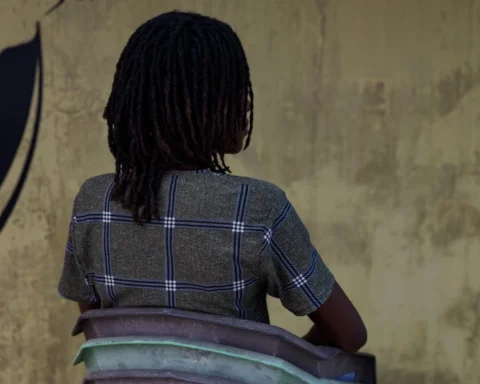Worries and concerns regarding COVID-19 such as worrying about getting sick (or having a loved one getting sick), losing a job/source of income, loneliness and a lack of control over when the pandemic will be over are enough factors to affect anyone’s mental health. Women are the primary caregivers of the family and the community as a whole. They are central to providing for family’s meals, nursing the sick, providing a safe and clean environment. However, with the imposition of lockdown restrictions to curb the spread of COVID-19, women are finding themselves taking more and more responsibilities. The country has had lots of problems.
Firstly, the country has been running with a water crisis for the past two decades. Now with the lockdown restrictions, women bear the burden of having to ensure that there is enough water for everyone at home. They are the ones who have to go to water points to collect water, where because of the shortages, social distancing may not be possible. So apart from worrying about the water shortages which may lead to diarrheal infections, there is also a heightened fear of contracting the virus and passing it on to their loved ones. This increased fear of contracting infections, coupled with the knowledge that the country’s health system is not functional, may negatively affect the women’s mental health.
Over and above their usual duties in the home, with schools closed indefinitely, mothers have had to take new roles on a “full time” basis. Mothers have had to maintain order in the house as well as entertain the children from the time they wake up till the time they sleep. Online learning and teaching has forced many women to learn new skills so that they can assist their children to keep up with school activities. Apart from learning new skills, they have the added financial burden of providing the children with the necessary smart phones/computers and data bundles. At times, they also have to ensure accessibility of internet. Somewhere in the midst of this, they have to reassure their children that all will be well. As we are in winter, respiratory infections are on the rise and this also increases the mothers’ fears of what if it’s not the ordinary common cold but the dreaded Corona viral infection. All these fears and overwhelming new duties have exacerbated women’s risks of developing anxiety disorders.
Because of a high unemployment rate in our country, many women have had to partake in informal sector as a source of their livelihoods or to supplement their husbands’ salaries. Most of the women in informal trade are cross-border traders, thus closing of borders means that they cannot travel to other countries to buy and sell their wares. Some are vendors who made a living by buying and selling. However, due to lockdown restrictions, they have had to stay at home thus losing their source of income. Already burdened by the stressful socio-economic situation, the complete loss of income is bound to hit them hard. For those that are employed, the fear of reduced income also affects women’s mental health negatively.
Confinement to the homes, coupled with poor socio-economic status, increases tensions in the home leading to increased gender-based violence (GBV). GBV increases the risks of depression and anxiety among women. Home for many women is already a place of violence so the lockdown measures are just going to perpetuate the poor mental health. The existing social support systems such as attending church, visiting friends/relatives have been disrupted due to lockdown restrictions. This increases their risk of developing common mental health disorders.
The pandemic is still around, no one knows when it will end, so that in itself is another source of anxiety. However, women can actually play a pivotal role in managing their mental health. Although social distancing, travel restrictions and staying at home are some of the measures taken to reduce the spread of COVID-19, women can still reach out for social support via social media platforms such as WhatsApp. A problem shared is a problem half solved. They can also reach out to professionals such as the Friendship Bench and Msasa Project when they feel that they need someone to talk to. Exercise is another way of taking care of mental health; it is advisable to go out for about 30-minute walk. Information is power; seek as much educative information as possible so that one is armed with the right information.







